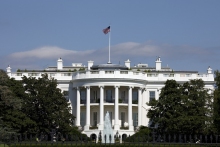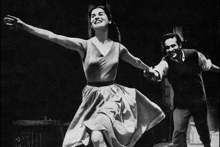In 1976, Leonard Bernstein and lyricist Alan Jay Lerner collaborated on the musical "1600 Pennsylvania Avenue", which ran for only seven performances on Broadway at the Mark Hellinger Theatre. The music has been reworked into an orchestral suite, a choral work, "A White House Cantata", and various…
Works
-
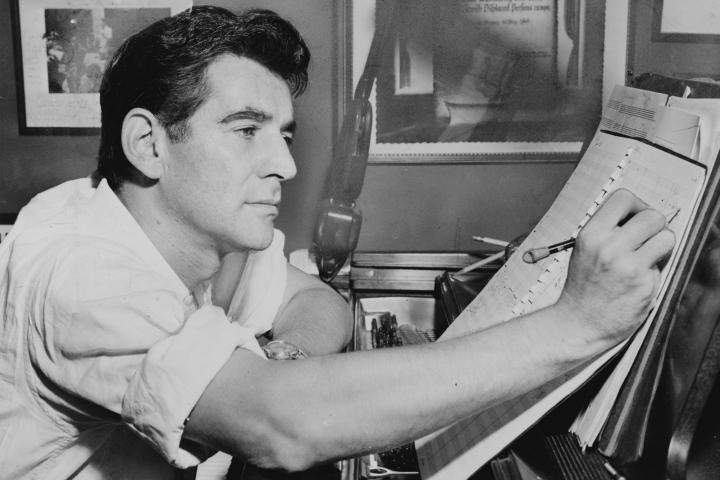 "Few composers capture their time and become the iconic voice of their age. Leonard Bernstein found his "voice" in the early 1940s and projected the sound of urban and urbane America from the period of World War II to the anti-war movements of the 1970s and the restoration of freedom in Europe, with the fall of the Berlin Wall and Soviet communism."
"Few composers capture their time and become the iconic voice of their age. Leonard Bernstein found his "voice" in the early 1940s and projected the sound of urban and urbane America from the period of World War II to the anti-war movements of the 1970s and the restoration of freedom in Europe, with the fall of the Berlin Wall and Soviet communism."
-Conductor John Mauceri
(Photo by Al Ravenna, 1955; via Wikimedia Commons)
Questions about programming, performing, and licensing?

After Bernstein's performance at the White House in 1960, President Eisenhower remarked, "You know, I liked that last piece you played: it's got a theme. I like music with a theme, not all them arias and barcarolles."
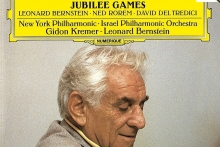
One of Bernstein’s last works, the Concerto for Orchestra was written for the 50th anniversary of the founding of the Israel Philharmonic Orchestra.
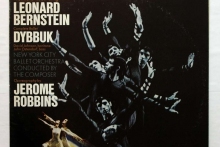
Dybbuk, a ballet by Leonard Bernstein and Jerome Robbins, is a fascinating exploration of Jewish mysticism, full of ghostly spirits and black magic. The score by Bernstein is among his most atonal and serialist compositions.
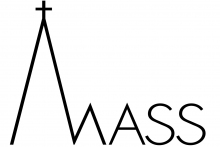
The eclecticism of MASS's music reflects the multifaceted nature of Bernstein's career, with blues, rock, gospel, folk, Broadway and jazz idioms appearing side by side with 12-tone serialism, symphonic marches, solemn hymns, Middle Eastern dances, orchestral meditations, and lush chorales, all un…
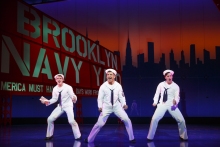
On the Town has been a classic since its original Broadway run in 1944, the show highlights the fleeting encounters and visceral energy of youth as three young sailors find love and excitement while on leave in New York City during one 24-hour period.
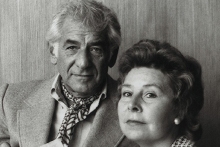
Written on the occasion of Karl Boehm's eighty-fifth birthday: "with affection from his admiring colleague," and completed in Munich, 25 August 1979, Bernstein's birthday. The nonsense words imply Hassidic vocalizations.
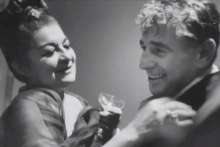
Bernstein wrote this piece in honor of the forty-first birthday of his friend mezzo-soprano Jennie Tourel. The song incorporates an old Lebanese folksong, the Arabic words of which are paraphrased in the lyrics: “The boys in the dark olive groves assemble.” Bernstein can be heard singing this …
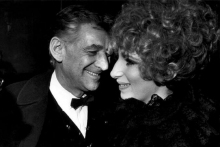
So Pretty is a 1968 anti-war song by Leonard Bernstein to lyrics by Betty Comden and Adolph Green, composed for a Broadway for Peace fundraiser at Lincoln Center's Philharmonic Hall to support the Congressional Peace Campaign Committee, which funded campaigns of congressional candidates opposing t…
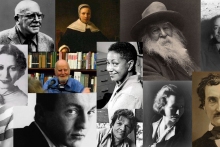
In Songfest, Berstein encapsulated 300 years of his nation's history through the words of 13 American poets. The subject matter of their poetry is the American artist's experience as it relates to his or her creativity, loves, marriages, or minority problems (blacks, women, homosexuals, expatria…
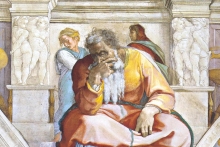
With his first symphony, Bernstein not only established himself as a major American symphonist, he began a musical and dramatic exploration of a theme that would continue to inspire many of his major works throughout his career. "The work I have been writing all my life," he said in 1977, "is abou…
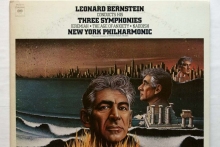
In his Kaddish Symphony, Leonard Bernstein exploits the dualistic overtones of the prayer: its popular connotation as a kind of requiem, and its celebration of life ( i.e. creation). He does this both in his speaker's text and in his music.
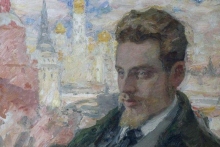
In 1949, Bernstein set a pair of texts by the poet Rainer Maria Rilke, the first of which, Extinguish My Eyes, was introduced that same year by mezzo-soprano Jennie Tourel at Town Hall in New York. It wasn’t until 1963 that she premiered the second song, When My Soul Touches Yours.
